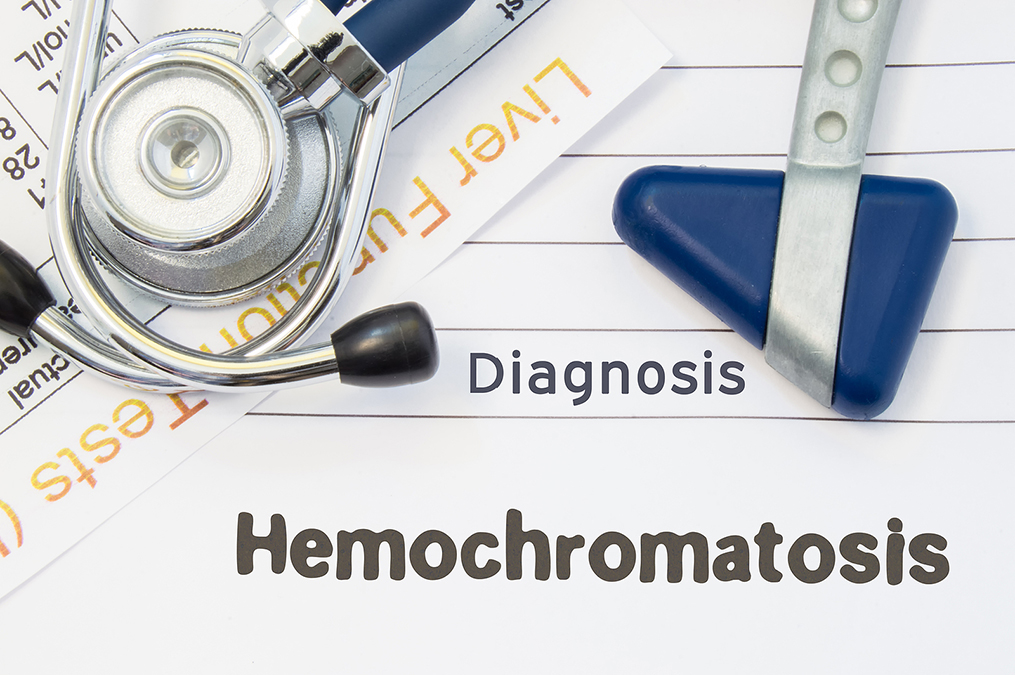 Until fairly recently, medical specialists did not believe that high blood iron levels (hemochromatosis) was a serious condition, aside from its link to high blood pressure.
Until fairly recently, medical specialists did not believe that high blood iron levels (hemochromatosis) was a serious condition, aside from its link to high blood pressure.
But they are quickly changing their minds.
A study just published in JAMA has now found that it poses a terrible, life-threatening health risk.
When your body has enough iron to function well, it excretes the rest in your urine. But the bodies of people with hemochromatosis do not do this and instead hang onto the iron. Eventually, it builds up in their hearts, kidneys, pancreases, livers, and joints.
This is a hereditary condition that is caused by abnormal variance of the HFE p.C282Y gene. In most countries, one in every 300 to 400 people carries this genetic variant.
British and Canadian researchers collaborated on this study and included data from 451,186 people, including 2,890 with hemochromatosis, obtained from the UK Biobank.
The participants were all from the United Kingdom and were all between 40 and 70 at the beginning of the study. They were then followed for an average of nine years.
They found that 7.2% of men with two copies of the defective HFE p.C282Y gene developed liver cancer by age 75 compared with only 0.6% in the general population. This gave them a 10.5 times greater chance of developing liver cancer than the general population.
In addition, they had a 20% greater chance of dying early from any cause than the general population, at 19.5% versus 15.1%.
Women with hemochromatosis did not have an increased risk of developing liver cancer.
This is disturbing, as hemochromatosis is often undiagnosed. It usually lacks precise symptoms, and sufferers attribute the joint and muscle pain and fatigue with which they struggle to aging or lack of fitness.
This is why only 10 of the 21 men with liver cancer in the study knew that they had hemochromatosis.
By the date the study was published, 14 of the 21 men with liver cancer had died, proving just how important it is to have your hemochromatosis diagnosed and treated early.
Since a massively increased risk for liver cancer is a very serious consequence of hemochromatosis, the authors of the study recommend that it become one of the standard tests for middle-aged men in routine health checkups, very much like cholesterol.
Because liver cancer seldom has symptoms until it is at an advanced stage, where even the best treatments are ineffective, we cannot wait for the liver cancer to be diagnosed before we start treating hemochromatosis.

 Overcoming IBD
Overcoming IBD Multiple Sclerosis
Multiple Sclerosis Banishing Bronchitis
Banishing Bronchitis Gum Disease Gone
Gum Disease Gone Overcoming Onychomycosis
Overcoming Onychomycosis Neuropathy No More
Neuropathy No More The Prostate Protocol
The Prostate Protocol Brain Booster
Brain Booster
 Ironbound
Ironbound
 Solution for Shingles
Solution for Shingles
 The Bone Density Solution
The Bone Density Solution
 The Ultimate Healing Protocol
The Ultimate Healing Protocol
 The Parkinson's Protocol
The Parkinson's Protocol
 The Chronic Kidney Disease Solution
The Chronic Kidney Disease Solution
 Overthrowing Anxiety
Overthrowing Anxiety The Fatty Liver Solution
The Fatty Liver Solution The Hypothyroidism Solution
The Hypothyroidism Solution
 The End of Gout
The End of Gout The Blood Pressure Program
The Blood Pressure Program
 The Oxigized Cholesterol Strategy
The Oxigized Cholesterol Strategy
 Stop Snoring And Sleep Apnea Program
Stop Snoring And Sleep Apnea Program
 The Arthritis Strategy
The Arthritis Strategy The Vertigo & Dizziness Program
The Vertigo & Dizziness Program The 3-Step Diabetes Strategy
The 3-Step Diabetes Strategy Hemorrhoids Healing Protocol
Hemorrhoids Healing Protocol The Erectile Dysfunction Master
The Erectile Dysfunction Master Weight Loss Breeze
Weight Loss Breeze The IBS Program
The IBS Program The Insomnia Program
The Insomnia Program The Migraine and Headache Program
The Migraine and Headache Program The Neck Pain Solution
The Neck Pain Solution The Menopause Solution
The Menopause Solution The Ejaculation Master
The Ejaculation Master The TMJ Solution
The TMJ Solution The Acid Reflux Solution
The Acid Reflux Solution The Fibromyalgia Solution
The Fibromyalgia Solution The Psoriasis Strategy
The Psoriasis Strategy